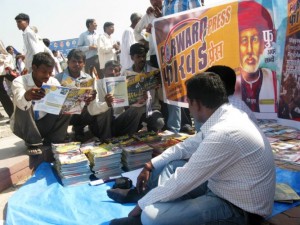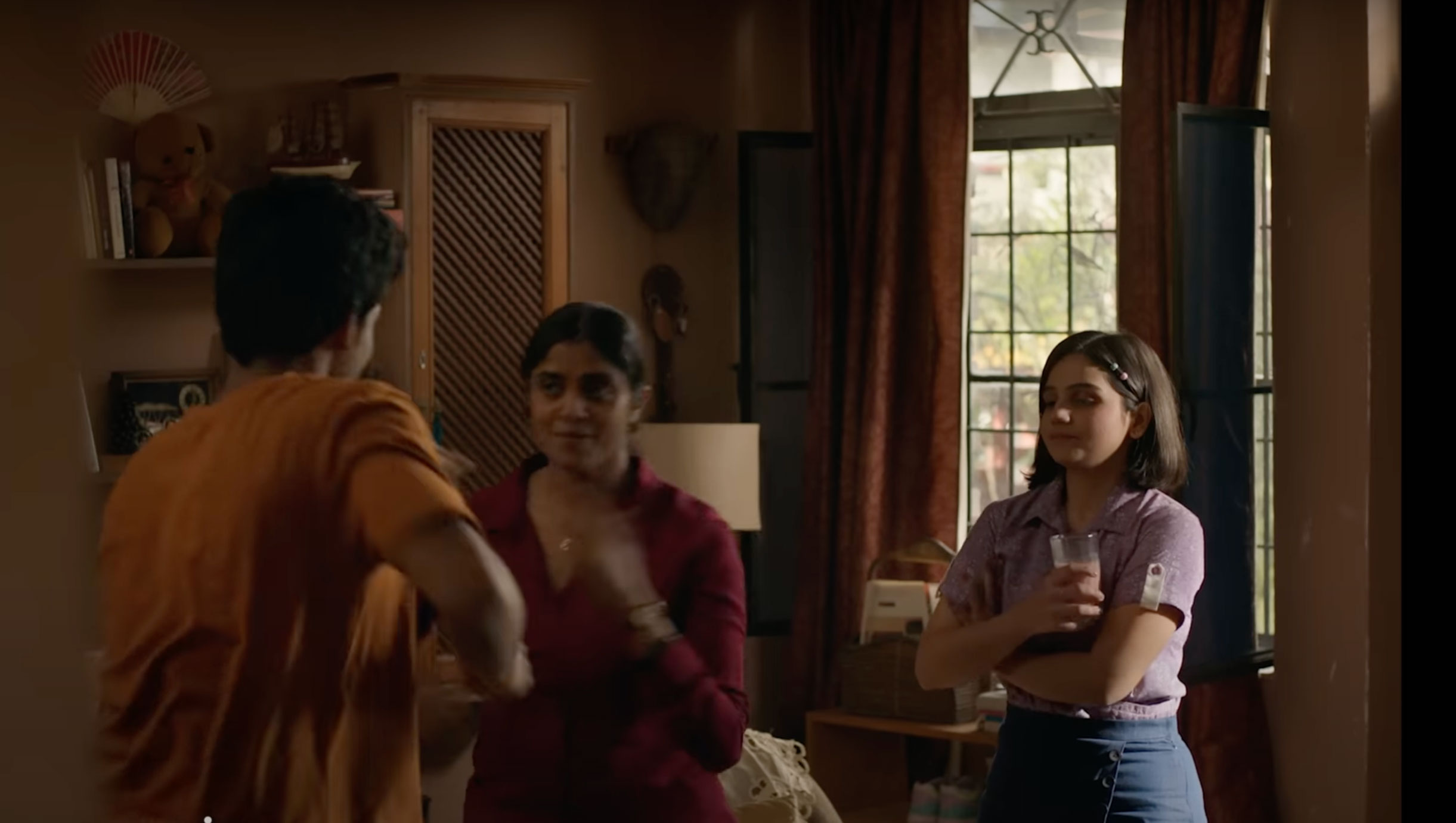“This was inevitable. It is a mystery why you were bringing it out in two languages and why it was so costly. Without knowing everything, I don’t write for such publications.”
– Vishnu Khare, senior Hindi poet, former editor, Navbharat Times (email dated 12 March 2016)
I would not not have written this editorial essay in the current issue of FORWARD Press but for this email of Vishnu Khare. Space is at a premium for a magazine like FORWARD Press. Over the last couple of years, organs of the RSS like Panchjanya and the Organizer, flush-with-funds Brahmanical websites, and rightist newspapers like Dainik Jagran and The Pioneer have been carrying out a consistent campaign against FORWARD Press. These forces have been on cloud nine ever since they received the news that FORWARD Press is folding up as a magazine. Overenthusiastic foot soldiers of the brahmanical brigade are writing on social-media platforms that “Since Modi ji has formulated new FCRA rules, the foreign-funding of FORWARD Press has dried up and that is why they have been forced to close down the magazine”. Many a time I felt like giving a fitting reply to them. But every time I gave up the idea as I felt that the space in FORWARD Press would be better used in promoting Phule-Ambedkarism.
 Whom have they spared? They charged Phule, Ambedkar, Kanshi Ram and Periyar with receiving funds from abroad. Whosoever raises their voice against Brahmanism is branded as being foreign-funded. And they have now come out with a more sinister definition. Now, whosoever opposes Brahmanism is described as anti-national.
Whom have they spared? They charged Phule, Ambedkar, Kanshi Ram and Periyar with receiving funds from abroad. Whosoever raises their voice against Brahmanism is branded as being foreign-funded. And they have now come out with a more sinister definition. Now, whosoever opposes Brahmanism is described as anti-national.
We understand the hollowness of these charges very well and we don’t see any need to reply to them. But what do I do with Vishnu Khare? He is one of my favourite poets. His three compilations of poems – Khudh Apni Aankh Se (1978), Sabkee Awaz Ke Parde (1994) and Kaal Aur Avadhi Ke Dauran (2003) – have been among my favourites. And this is not only about Vishnu Khare. I have answered his email. But he is not an exception. He represents a rather weird mindset of the world of Hindi literature – which I have experienced during my five years with the FORWARD Press. There is a big community of writers and poets which not only suffers from the frog-in-the-well syndrome but is perpetually nonplussed. This community, which is adept in the art of launching a whispering campaign, causes much more pain and distress to people like us, who want to propagate a new idea, than those who launch a direct attack. That is why, it is important to put these whisperings to rest. Let those who want to attack us come out in the open. Let them have an eyeball-to-eyeball contact with us.
Before talking about my answer to Vishnu Khare’s above-mentioned email, let me dwell on the earlier exchange of emails with him. That will help you grasp where the problem lies.
Last year, I had posted the PDF of the FP Bahujan literary annual on the Google Group of FORWARD Press writers and invited them to attend the annual Foundation Day function of the magazine on 29 April in New Delhi where the annual number was to be released.
Vishnu Khare wrote back on 26 April 2015 :
“I read your special number from cover to cover. It is important. The contemporary Hindi literary world can justifiably feel proud of the contents of the issue. I will not be able to attend the function on 29 April but I know it will be meaningful and successful. (But) Why do you write debrahmanizing history? Why not desavarnizing history? This gives an escape route to the two other varnas and it seems as if only Brahmins are being targetted.”
I replied: “Thanks Vishnu ji. I am grateful for your affectionate words. Yes, you are right to an extent. Actually, the word debrahmanizing, being in English, does not convey the full import of this struggle. That is why I have been in favour of describing this as a struggle of non-Dwijs or, for convenience, of Bahujans. But debrahmanizing does not mean what you are taking it to mean. We would have been very happy had you attended the programme. Do write for FORWARD Press sometime.”
Khare replied the same day: “Non-Dwij is okay in Hindi. But unfortunately, twice-born is used for non-Dwij in English and de-Dwijification seems odd. Moreover, de-twice-born cannot be used as a noun. Some solution should be worked out for this.
“Bhai, as you must know, I left Delhi for Mumbai more than four years ago. I am corresponding with you from Germany, from where I propose to fly home on 29 April. Obviously, it would have been impossible to attend your function. I do wish to write for you but at present, I do not consider myself capable of it.”
Our correspondence ended here. I did not respond to his “wish to write” and his not “finding himself capable of it”. The reason was that I found it bizarre then. I did not know how to interpret “not finding myself capable”. It is true that most of the Hindi litterateurs are not capable of imbibing Phule-Ambedkarism – their social background is the biggest impediment to this – but some writers have overcome this obstacle. But Vishnu Khare did not mean what I had taken him to mean. After his latest email, I am clear about what he meant. What he was saying was that FORWARD Press was not worth writing in for a Hindi author like him, who was living in Germany. The fact is that many leading “Hindi” and “English” intellectuals of disciplines other than literature have not only been writing for FORWARD Press but are appreciative of its endeavour to explore new aspects of our culture and society. But apparently, for Hindi litterateurs this is of no consequence.
Be that as it may, it is rather strange that a veteran Hindi poet like Vishnu Khare does not know that “Brahmanism”, “debrahmanizing” and so on are conceptual terms of Phule-Ambedkarism and have nothing to do with any particular caste. Brahmanism means social and economic domination of a society through cultural domination and the oppression and exploitation of the majority. Similarly, debrahmanizing means liberation from this domination. For instance, we might say that the writings of Rahul Sankratayan, Muktibodh, Rajendra Yadav, Veerbharat Talwar and Uday Prakash display their yearning for breaking free from Brahmanism. In any case, this is not a new word. In the Marxist circles, with which Vishnu Khare is associated, the word “de-class” was very popular. Did he feel at that time that only his class was being targetted?
This is the difference between class and caste. “De-class” is not a problem for anyone. But “de-caste” brings the genie of Brahmanism out of the bottle.
Anyway, let us return to the main issue. In reply to Vishnu Khare’s latest email, I wrote:
“Respected Vishnu ji, FORWARD Press is/was not expensive. In fact, it is cheaper than other literary magazines. If 1000 copies of a magazine are printed, its per-copy price will be high. As for FORWARD Press, around 10,000 copies of the magazine are presently printed. The cost per copy is Rs11 while the cover price is Rs25. If you want to understand the ‘mystery’, look at it this way.
- FORWARD Press is only a 64-page magazine, of which, now, only eight pages are colour. Its price has been Rs25 right from its launch in 2009. In terms of number of pages, it is the costliest magazine in its class in the market. Shukrawar, which had more than 100 full-colour pages, was priced at Rs10. Hindi India Today, which has around 76 pages (full colour, costly paper, high salaries) sold for Rs15 till recently. And now it sells for Rs20. You were the editor of an edition of Navbharat Times. I hope you must have understood what this means. This means that the readers of FORWARD Press were ready to pay much more for it because of its content. This means that FORWARD Press was dependent on its readers rather than on advertisements.
- Magazines with much lower circulation than us get ample advertisements. You know as well I do what the print order of different magazines is (how they manage to get advertisements is a ‘mystery’ which only they can resolve). FORWARD Press has got very few government and private advertisements in the past eight years. (Why, we know very well. Firstly, because of the casteism lurking in every corner and secondly because of the insistence of its owners – the Kostkas – that they would not lie – neither verbally nor in writing – about its circulation and nor would they pay a pie as bribe).
- The last couple of years have witnessed bookstores turning into restaurants and general stores. And this is happening at a fast pace. Things have come to such a pass that ‘prestigious’ Hindi and English newsmagazines are paying Rs2000-Rs4000 to leading bookstores just to display their publications. They want to ensure the visibility of their publications not for sale but for their advertisers. FORWARD Press, which was banking only on its readers, could not afford to make these payments.
- Our postal services are in a shambles. We were flooded with complaints from our subscribers that they were not getting the magazine. We were tired of knocking at every door to resolve this problem. In fact, we were gripped by a guilt complex while enrolling new subscribers. We could never be sure that they would get the magazine. Till some years back, when letters were sent and received, there was pressure on the postal department to perform, which is now gone. Neither our readers nor we are in a position to have the magazine worth Rs25 dispatched through registered post or courier.
- The subscriber base of FORWARD Press is mainly comprised of Dalits, Tribals and Backwards who have entered the ranks of mainstream/middle class/lower-middle class over the past few years by virtue of getting government jobs or sociopolitical activities or by launching their own small self-employment ventures. This is the ‘creamy layer’ of the deprived classes and in this market, FORWARD Press has no competitors. As compared with others, our sales were much higher. For every copy sold, the number of readers was very often in the tens, whether on campuses or villages. FORWARD Press was the magazine of the ‘south’ segment of Indians [Dalitbahujans, who have traditionally been settled in the southern end of villages]. It is ironical that the Hindi literary world, which is persistently lamenting the disappearance of readers, could never understand the hunger of the deprived sections for reading material that would help them understand the hows and whys of their situation and the way to resist the machinations of their oppressors and exploiters. It seems that the Hindi intellectual class and the majority of the residents of this country live on different planets. But it was our good fortune that at a time when other magazines were facing dwindling readership, the demand for FORWARD Press was growing. However, we alone could not have sustained the collapsing distribution system of magazines. And that is the main reason we have decided to suspend the publication of the print edition.
- You were also curious as to why we were bringing out a bilingual publication. Many bulk purchasers of FORWARD Press were English-teaching institutions. Besides them, a large number of our readers used the magazine to improve their English. It was because we were bilingual that we could penetrate into many university campuses and we had a strong subscriber base in non-Hindi speaking states. One more point. Hindi writers are very keen that their works should get translated into English. But their target is European readers. They are not interested in the struggling and toiling masses of the south of the Vindhyas. Only you can resolve this ‘mystery’.
Vishnu ji, I hope my answer has satiated your curiosities. But without any hesitation, I would like to say that your mail has hurt me deeply. Anyway, it does not matter. People like us had better learn to hear and tolerate all sorts of comments and to give repeated explanations.” – Pramod Ranjan, 17 March 2016.
Many days have passed but Vishnu Khare has neither replied to my mail nor expressed any regret for hurting me. I want to ask him whether he is aware of the “mystery” of Shukrawar, of Tehelka, of The Public Agenda and indeed of Navbharat Times, which he had served for many years. I remember that some years ago, journalist Diwakar had reviewed a book on Vishnu Khare in Outlook (Hindi). He was so infuriated that he wrote an article in which, among other things, he taunted Diwakar about his age. “I am into journalism since before you were born”, he wrote. Diwakar gave a very apt answer. “If I was not born then, it is not my fault. But I know what the truth is.” I would like Vishnu to recall that episode.
To readers and well-wishers
As the news of the so-called “closure” of the magazine spread, I started receiving a stream of phone calls and messages offering financial help. Some of the callers, from the back of beyond, turned so emotional that at times I felt that we have taken a wrong decision. But as soon as I explained to them our future plans, they were convinced to a great extent. I tell them that the publication of the print edition has only been suspended, it has not ceased. To run the magazine successfully, we need to develop our own distribution system. And this will become possible only if get active co-operation of social organizations or a substantial capital investment. If that comes about sometime in future, we will resume the publication of the print edition.
Messages from readers in small towns suggest that they think that I am as saddened by the turn of events as they are. I wish to tell them that after June, your dear editorial team will immerse itself in the mission of making the FORWARD Press website the most thought-provoking website in India. I am not at all nostalgic about print. The means of writing, printing and spreading knowledge have been changing with the times. We first wrote on palm leaves, then on leather and next on cloth. For the last 400 years, we have been writing on paper. But the coming era is of the web. We will have to overcome our attachment to paper. Writing will continue, books will still exist, magazines will be published and libraries will be around. But things printed on paper will be confined to museums: just as we see manuscripts written on palm leaves in museums.
The readers of the print edition argue that people in villages and small cities do not have access to the web and even where this facility is available, the older people are reluctant to use it. I tell them that that the Modi-worshippers may consider us their enemies but Modi ji is doing a great thing for people like us. His Digital India project is proceeding in the right direction. You should only ensure one thing: whether Modi ji remains or not, the Digital India project continues. It will mark a great leap in the direction of annihilation of Brahmanism in the country.
These dear readers laugh but are reassured by the web edition of FORWARD Press continuing. They say that they will take printouts and distribute it. I tell them that this won’t be necessary. FORWARD Press won’t only be on the web. We will publish eight books every quarter – four in Hindi, four in English. All the important articles put on the web will be compiled in the books. Thus, even compared with the monthly print edition, the magazine will only get bigger. Now, they do not laugh but their tone shows that they are relieved. I tell them that each book will be around 128 pages and will cost only Rs100. They should order as many copies as possible. That would be a big help. And if you are capable of extending more financial support, a “support” button will be available on our website. You can use it to strengthen and expand our mission and Bahujan journalism.
I also want to tell our readers that our print edition was of only 64 pages and it contained material in both English and Hindi. Excluding the cover pages, contents and so on we were left with barely 28-30 pages for accommodating reading material. The first thing I did after associating myself with FORWARD Press was to discontinue the publication of letters of readers on two pages. This must have hurt the readers who wanted to express their opinion about the articles published in the magazine. But we had to discontinue it to save space. And this was the reason why I decided to give more and more space to research-based articles on current topics based on Phule-Ambekarite ideology instead of myself writing in every issue. But now, on the web, there will be no dearth of space. There will be enough space – for you and for me. So, let’s embark on a new journey after June.
Further, I wish to tell you that after the suspension of the print edition, we shall be free to accept financial aid from India and abroad for the publication of books. We would appeal to Ambedkarite and other Bahujan institutions or individuals and other like-minded organizations both in India and in other countries to aid us in every possible way to build India’s first professionally run Bahujan publishing house.
To our opponents
I know this essay would come as a shock to those who were elated over the “closure” of FORWARD Press. But friends, we are not against you. Opposing Brahmanism and Manuvad is not opposing you. Today, if we are feeling liberated in this country, it is because Manuvad and Brahmanism has weakened.
 The weakening of these oppressive systems is tantamount to freeing the individual – in family, in society and everywhere else. The freedom you youths enjoy today is because of that. I would like to use this opportunity to respond to your charges.
The weakening of these oppressive systems is tantamount to freeing the individual – in family, in society and everywhere else. The freedom you youths enjoy today is because of that. I would like to use this opportunity to respond to your charges.
You are saying that FORWARD Press is closing down because the present government has changed the FCRA rules governing the funding of NGOs. FORWARD Press is a magazine, not an NGO. FORWARD Press is being published by a private limited company. The Companies Act prohibits companies from accepting any donation – from India or abroad. Moreover, for news and current affairs media, foreign direct investment is capped at 26 per cent. The small capital that helped run FORWARD Press was mostly the private capital of the directors.
My dear opponents, I appeal to you: Let us join hands to build a just and an equitable society and thus afford India pride of place in the comity of nations.
Postscript
I can only wish that this were my last article in FORWARD Press and I could fulfil my wish of writing in detail about the magazine’s editor-in-chief Ivan Kostka and Mrs Silvia Kostka. But we would perhaps need to work together for a long time to come, and whatever I write today would be only be incomplete reminiscences. However, after working together for all these years, I can say that it is as difficult to find a man as committed to lofty democratic and humanistic values like Mr Kostka, as it is to find a sacrificing woman like Mrs Kostka.
I have been witness to the economic and physical hardship they underwent to keep this publication alive. I don’t know how many times the couple and I disagreed on issues relating to the print edition but not even once was I overruled. This is rare in these times of diluting editorial autonomy. Maybe, in the next issue, Mr Kostka would write about his experiences of publishing the print edition. They would be much more valuable for the readers, and for me, too.
Published in the April 2016 issue of the FORWARD Press magazine









